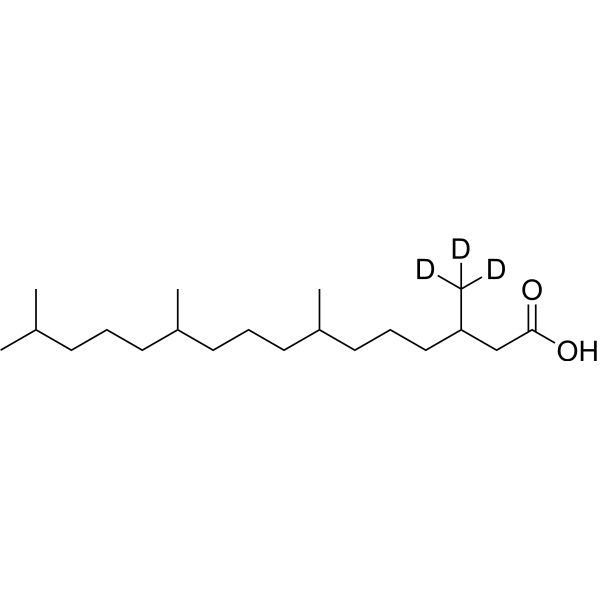1383920-40-8
| Name | Phytanic Acid-d3 |
|---|
| Description | Phytanic acid-d3 is the deuterium labeled Phytanic acid[1]. Phytanic acid is an endogenous metabolite present in Blood that can be used for the research of Zellweger Syndrome, Alpha Methylacyl CoA Racemase Deficiency, Rhizomelic Chondrodysplasia Punctata and Infantile Refsum Disease[2][3][4][5][6]. |
|---|---|
| Related Catalog | |
| In Vitro | Stable heavy isotopes of hydrogen, carbon, and other elements have been incorporated into drug molecules, largely as tracers for quantitation during the drug development process. Deuteration has gained attention because of its potential to affect the pharmacokinetic and metabolic profiles of drugs[1]. |
| References |
| No Any Chemical & Physical Properties |
